What is Alles Ist Schon Da?
Drawing from projects and concepts from Hamburg and beyond, the gathering staged a reading of the expanded field of urban curating and its correlations with performing arts, critical spatial practice, urban practice, organizational system thinking, community-based planning, and cultural planning. At these intersections of eco-social urban practices, lies a radical, relational, queer-feminist approach to repairing and maintaining our cities. We asked: how can urban curating pull these practices together despite their differences, and highlight their shared values of civic political engagement in a way that has a real impact on politics in the city?
The gathering borrowed its title – ALLES IST SCHON DA – from an observation made on the site of PARKS at the site of the former Alster Bille. It relates to the way the custodian organization are working to activate this former recycling yard as a new public space for the neighborhood and the city. We wish to highlight a simple observation that symbolizes our approach to urban curating: every site in the city already includes a given set of materials, conditions, and questions that might be needed for it to be understood and activated. We propose that such activation should draw from this hidden potential and respond to it, rather than imagine it from the outside. In this way, we see urban curating as a practice in relation to a site, with first and foremost a responsibility to care for that site's past, present and future.
This need for responsibility opens up a series of questions about residency and locality, hospitality, and stewardship, as forms of social relations and social practice. What relations happen on-site and between sites? How do these relations unfold and change over time? What skills and tools are required to sustainably construct, as well as transform, such social and material relations?
The ALLES IST SCHON DA gathering took place on the site of PARKS and in collaboration with the Social Design Class from the HFBK Hamburg and drew on local and European networks of urban curating practitioners. The gathering was curated as a working session reflecting PARKS’ and the Social Design Class’ processes. Most of the gathering was programmed with small-scale conversational formats and working sessions. We moved from ritual to hologram, to workshop, to assembly. The program was deliberately slow and small, focusing on encounters and knowledge exchange at an informal pace.
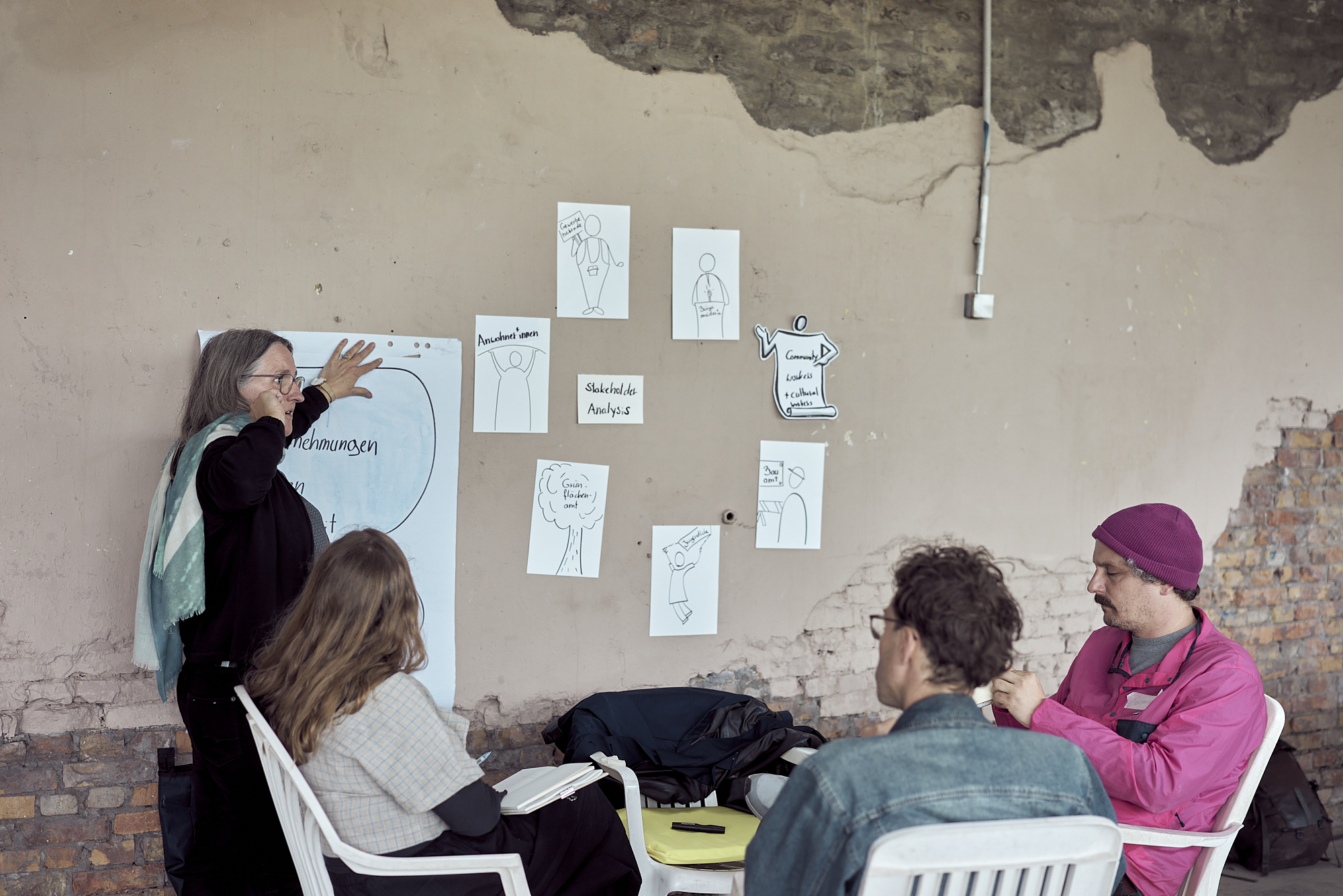
Kristina Nauditt, ARGO-Team, Hologram for urban curating session. Image by Antje Sauer.

Participants over walkie-talkie with Performative observers Jacopo Asam and Maren Stocklöw. Open Assembly. Image by Antje Sauer.
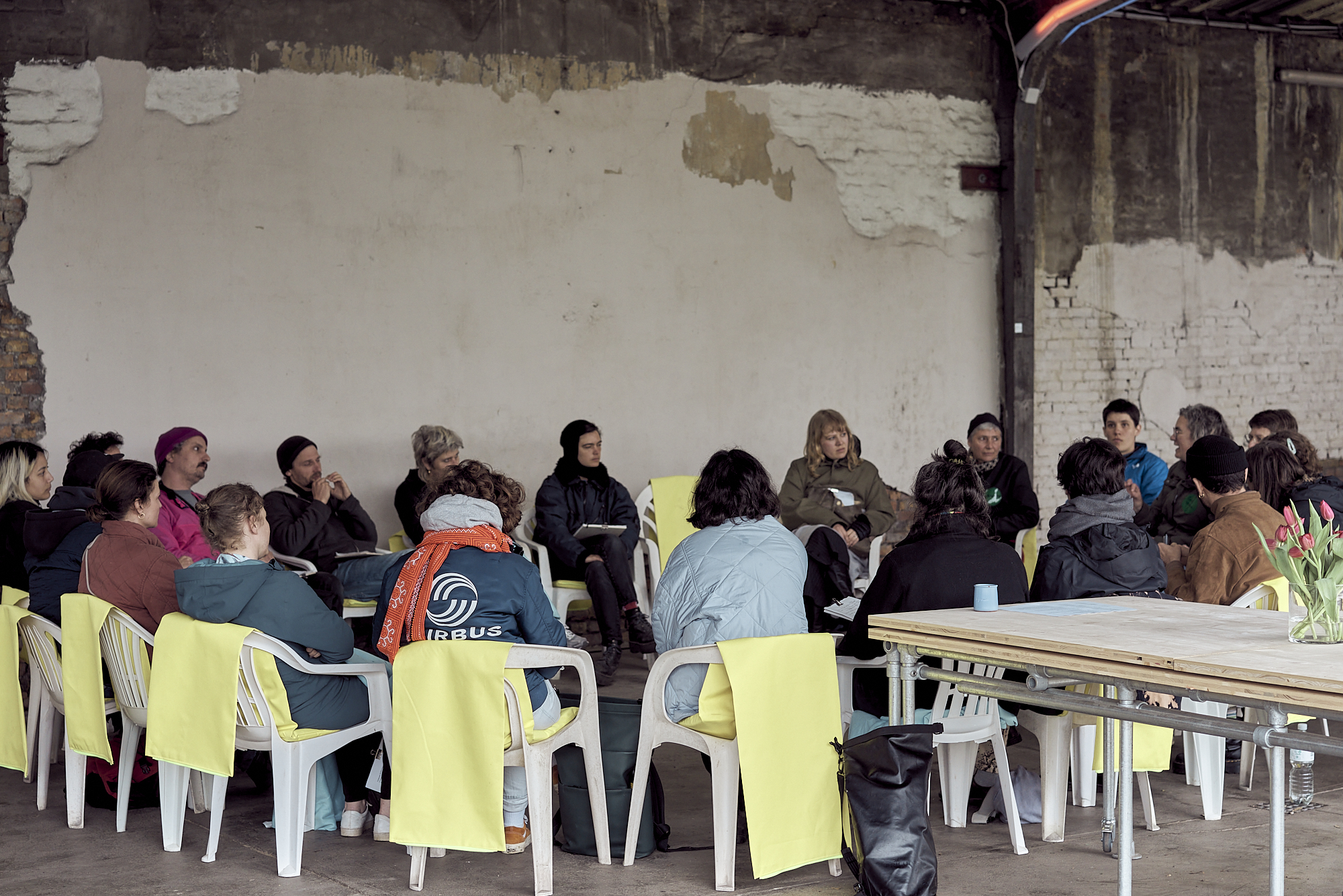
Landscape Architecture as Curatorial Practice, workshop with Katarina Bajc and Antje Stokman. Image by Antje Sauer.
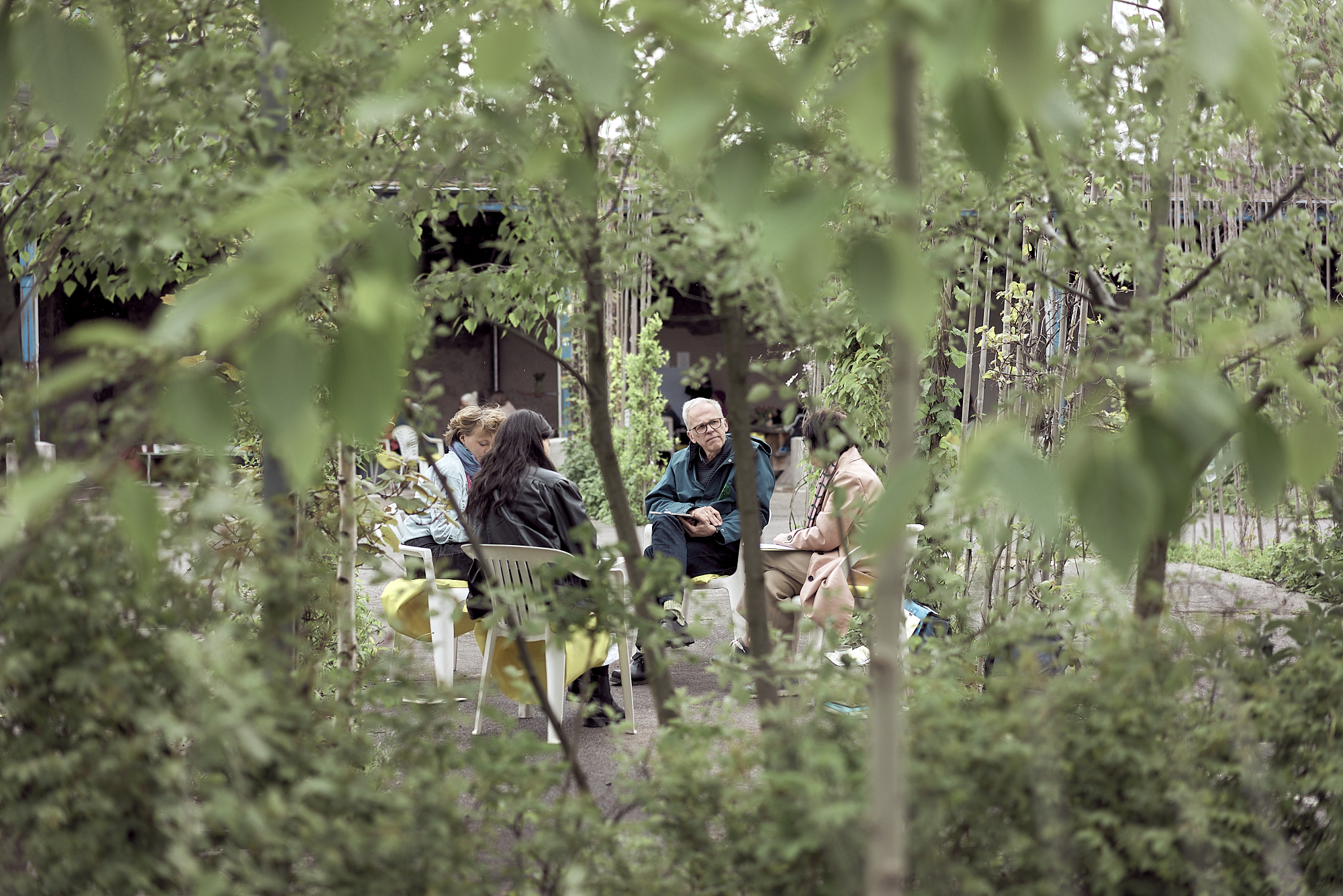
Is there serendipity in urban practice and if so, how can we foster it? Hologram for urban curating session by Kristin Lazarova. Image by Antje Sauer.
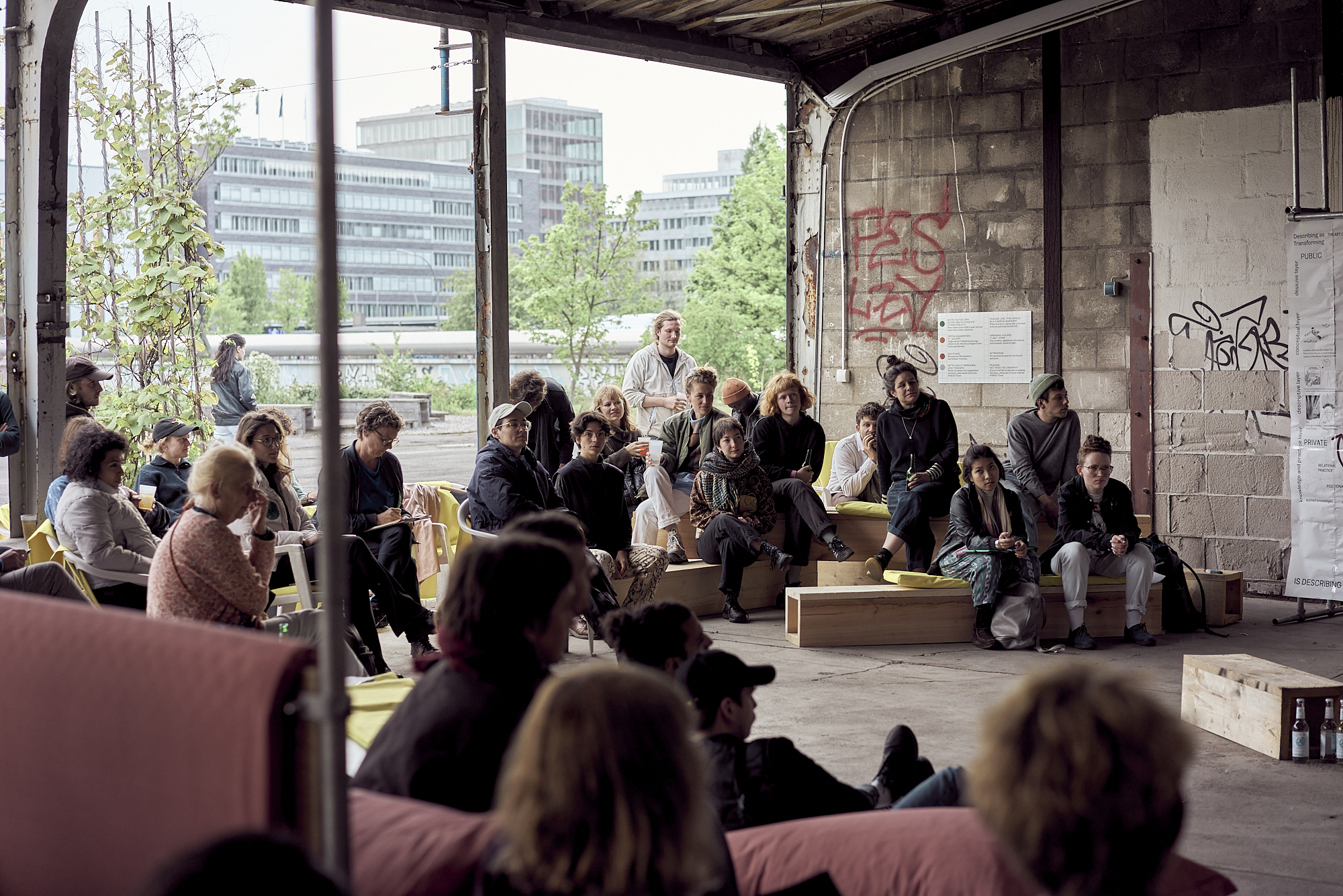
Open Assembly, Moderated by Nuriye Tohermes - PARKS (in picture) with Performative observers Katrin Wildner (in picture), Felix Egle, and Jacopo Asam and Maren Stocklöw. Image by Antje Sauer.
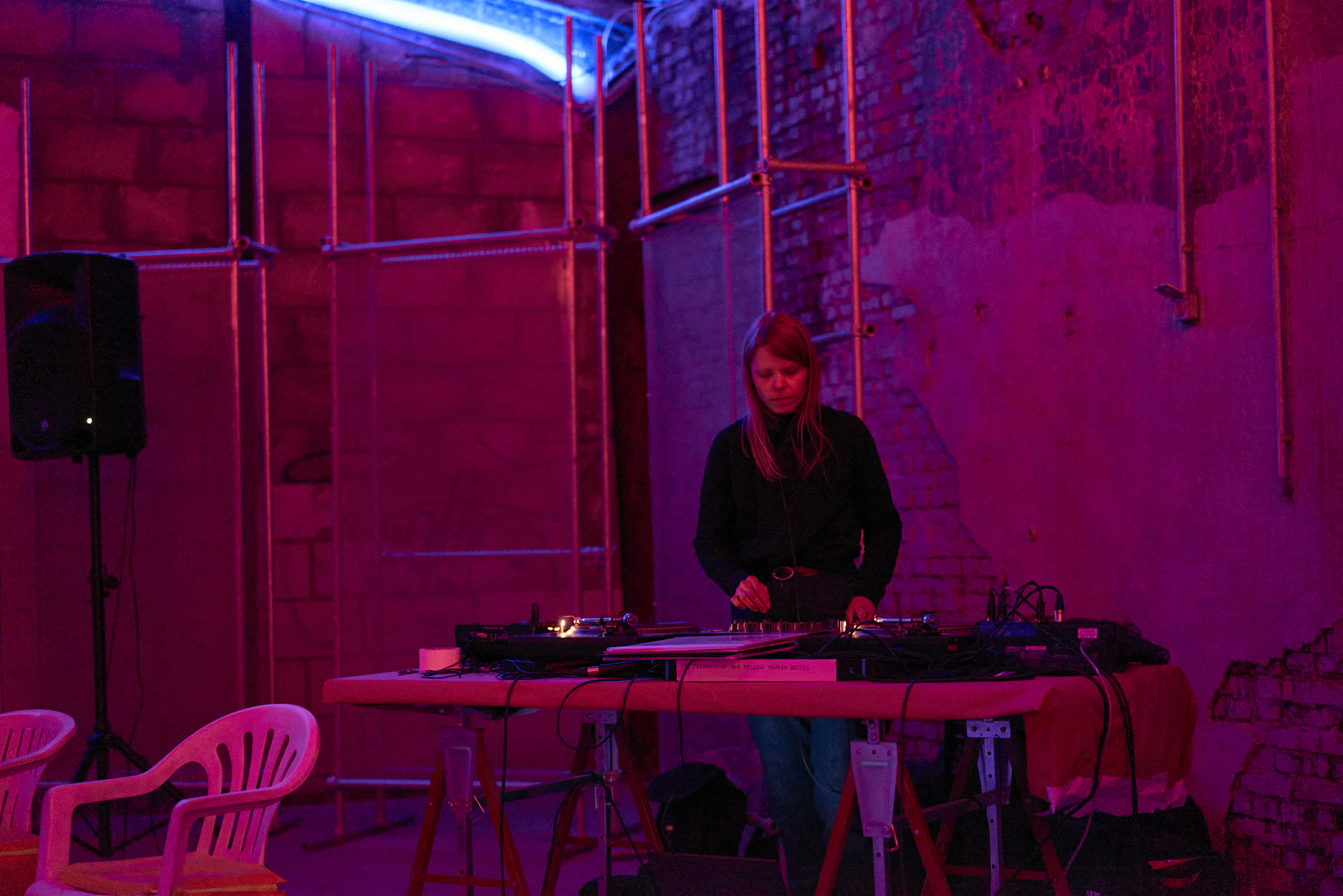
Hallo: Radio, guest Julia Nordholz. Image by Antje Sauer.
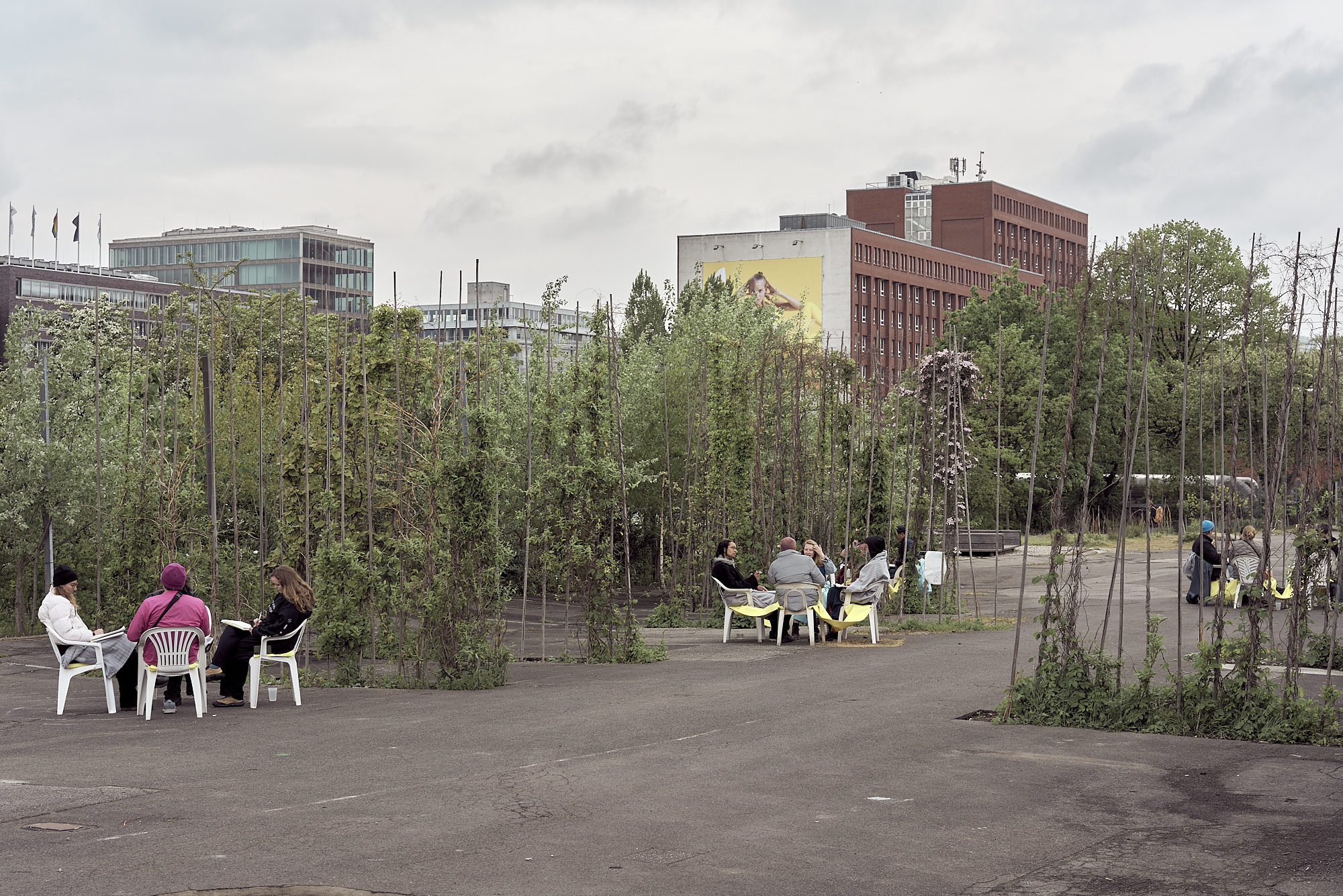
General view of hologram for urban curating sessions. Space design by Lola Bott, Karolina Kaiser, Charlotte Perka and Sandra Schumann - Social design class, HFBK Hamburg. Image by Antje Sauer.
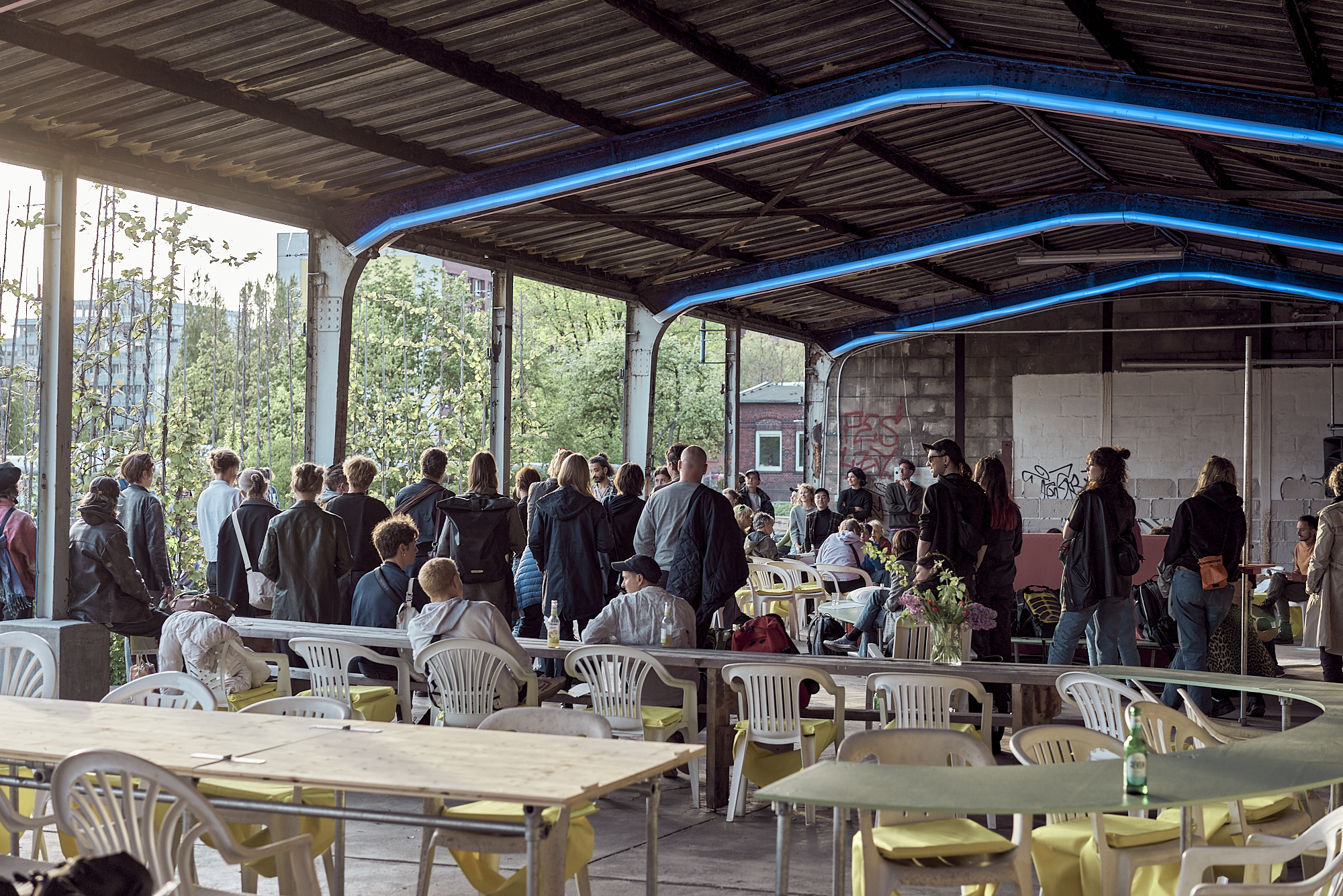

Take Me to the River, a night walk with Kathrin Dröppelmann. Image by Antje Sauer.